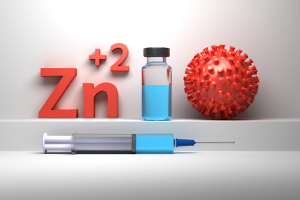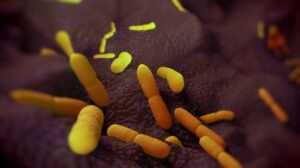Could zinc protect against COVID-19?
A review of the evidence on zinc suggests the mineral could have protective effects against COVID-19 by boosting anti-viral immunity and curbing inflammation.
Diet and health have many links, including immune system function. Good nutrition supports the immune system to fight pathogens and helps to avoid chronic inflammation following an infection.
Many people know that vitamin C has significant effects on the immune system. Deficiency in the vitamin has associations with a higher risk of infections, such as pneumonia.
During the COVID-19 pandemic, interest in dietary supplements to support the function of the immune system has intensified. Although no specific food or supplement can prevent a person from contracting COVID-19, certain nutrients can help support the immune system’s function.
Stay informed with live updates on the current COVID-19 outbreak and visit our coronavirus hub for more advice on prevention and treatment.
A recent review has focused on the benefits of zinc against COVID-19. Zinc is a mineral found in many different food types.
The findings suggest that zinc could have protective effects against COVID-19 by supporting anti-viral immunity and reducing inflammation. A team of researchers at Sechenov University in Moscow, Russia, led the review and published it in the International Journal of Molecular Medicine.
Zinc is an essential mineral with a wide range of roles in the human body, including supporting the function of over 300 enzymes. The body needs zinc to carry out normal metabolism and ensure the proper function of the reproductive, cardiovascular, and nervous systems.
Foods high in zinc include animal products, such as meat, shellfish, chicken, and fortified breakfast cereal. However, beans, nuts, and seeds also contain zinc. Phytates in vegetables and grains can reduce the absorption of zinc and, therefore, vegetarians and vegans may need 50% more zinc in their diet.
Deficiency in zinc has associations with delayed growth in children, as well as increased risk of infection. It is also a significant risk factor for the development of pneumonia, which can be a consequence of COVID-19.
“According to the current estimates, the risk of zinc deficiency is observed in more than 1.5 billion people in the world,” explains lead author of the review Prof. Anatoly Skalny, who heads the Laboratory of Molecular Dietetics at Sechenov University.
“Given the crucial role of zinc in regulation of immunity, one can propose that its insufficiency may be considered as a risk factor for infectious diseases.”
– Prof. Anatoly Skalny
Together with colleagues in Russia, Germany, Greece, Norway, and the United States, Professor Skalny put together a review of the scientific evidence on zinc’s role in preventing and treating respiratory infections, including COVID-19.
Alex
Koordynator projektu




